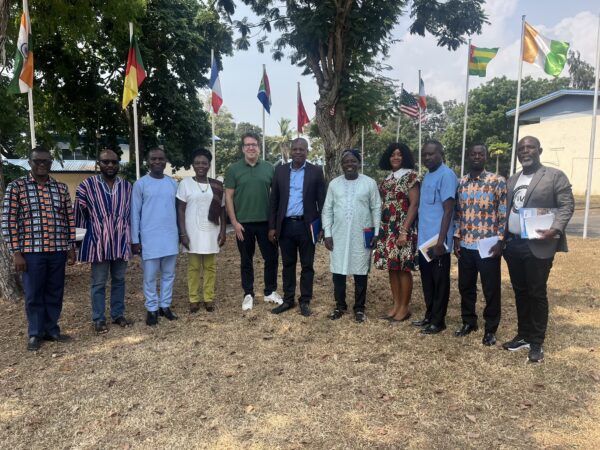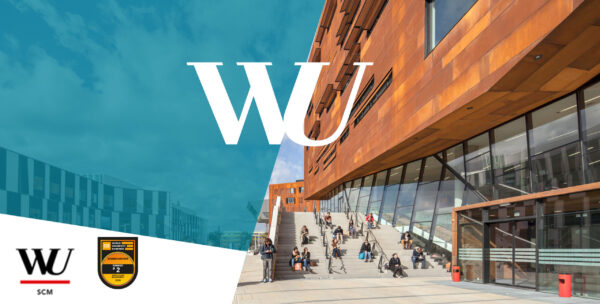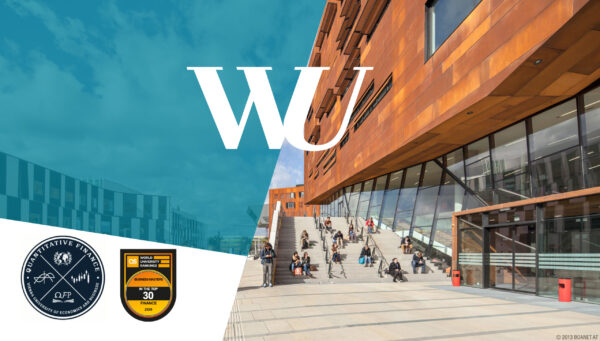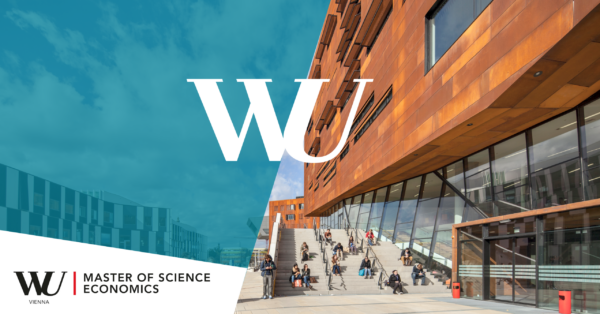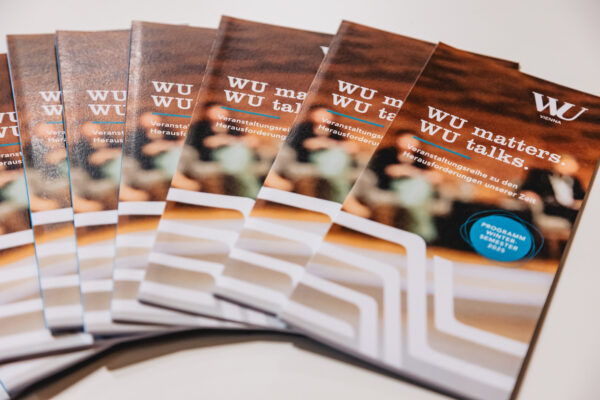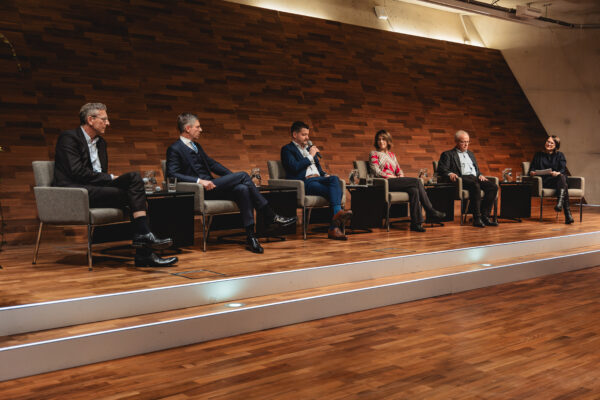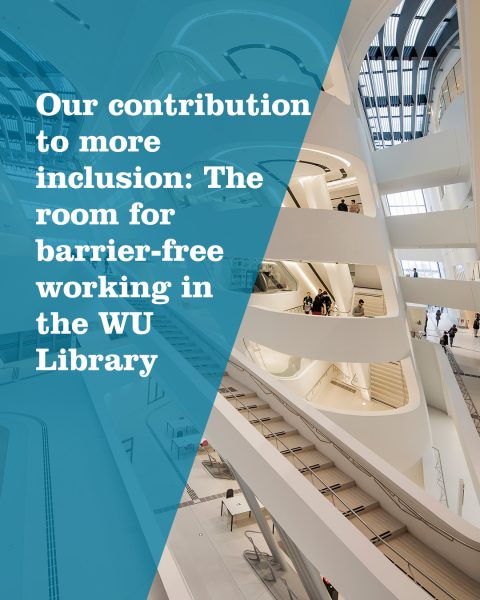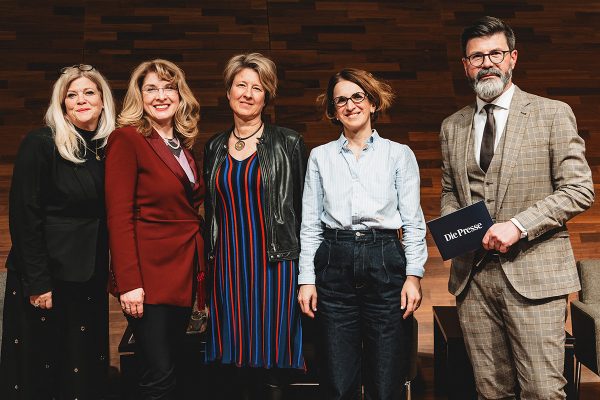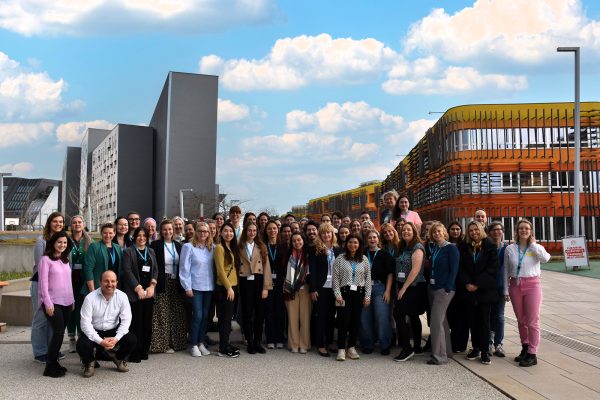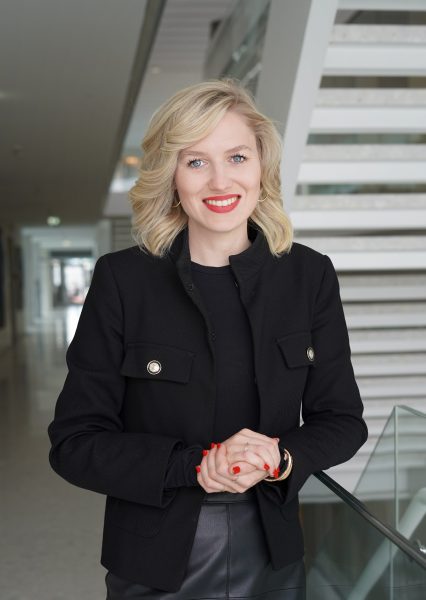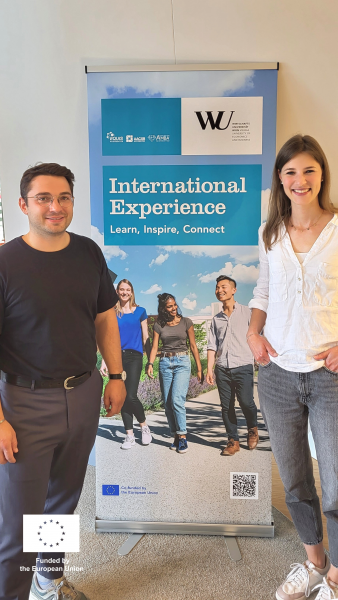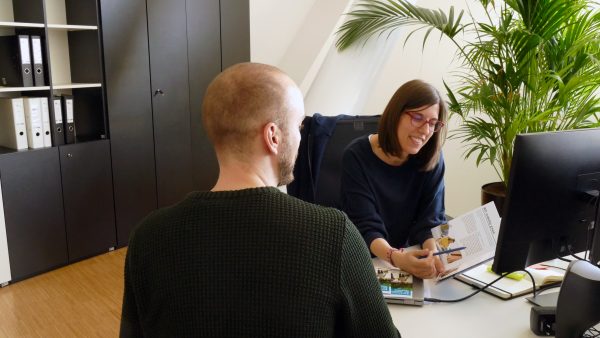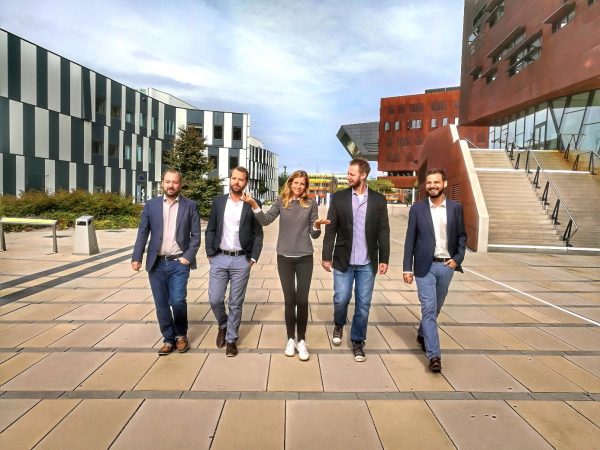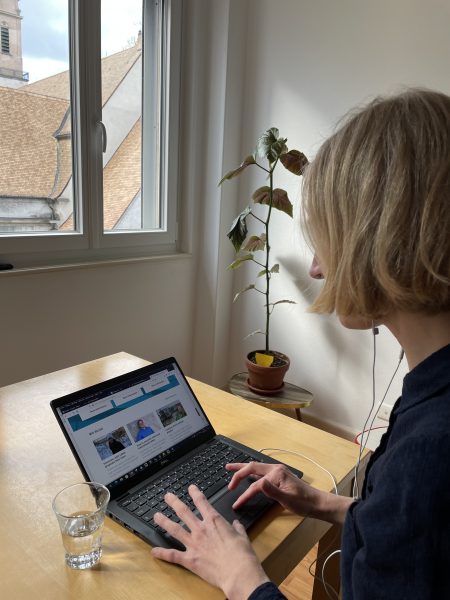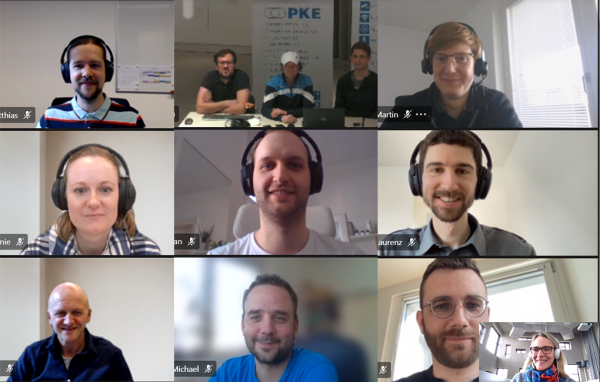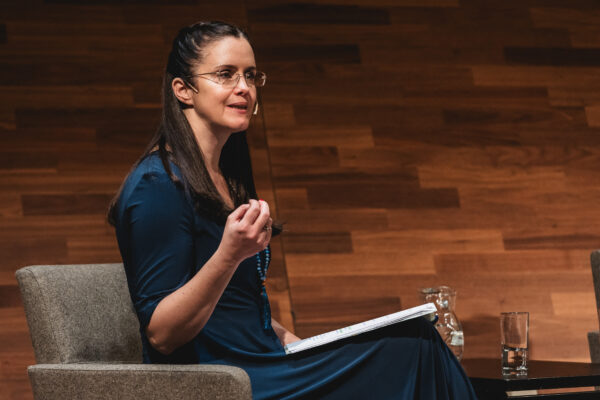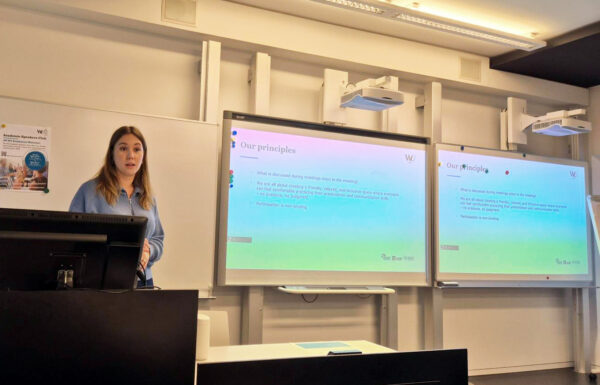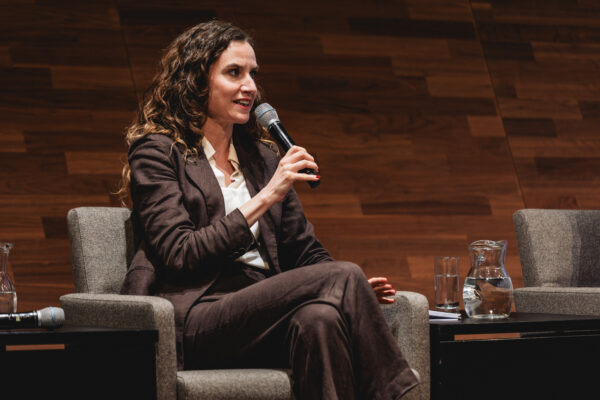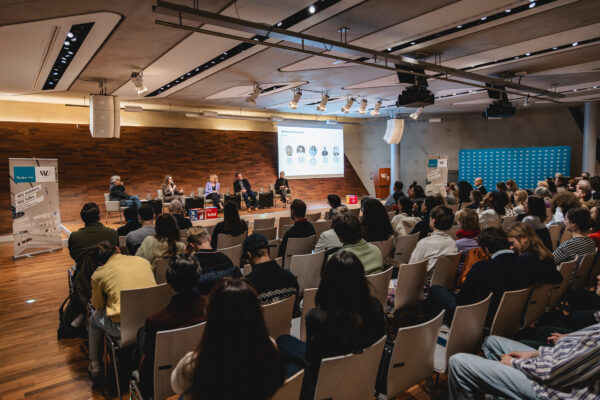“In younger students, there is this extreme angst about the future”
Clive Spash is the academic director of the Socio-Ecological Economics and Policy master’s program (SEEP) at WU. Recently, he has published his new book “Foundations of social ecological economics”, in which he sets out to define a new theoretical basis for economic thought. We asked him six questions about his new book, his outlook on society – and what motivates students to study socio-ecological economics at WU.
WU Blog: The subtitle of your new book is “The fight for revolutionary change in economic thought.” What’s the problem with economic thought, in your opinion?
Clive Spash: One of the big issues is that economists talk about the economy as if it was singular. There are many different types of economies when we start thinking about economics as social provision: How do we provide for ourselves, how do communities provide, how do families provide for their needs? This is an ancient story that goes all the way back to the beginning of hunter-gatherer societies. There are clearly many ways in which people can provide for themselves, and there are many types of economies. But modern economics only focuses on capitalism and the market economy.
Modern economics only focuses on capitalism and the market economy.
WU Blog: Many definitions of economics focus on scarcity. Would you disagree?
Clive Spash: Scarcity has two aspects to it. One is the biophysical reality: In particular environments and ecological systems, we might have scarcity of certain resources. But scarcity is heavily overplayed ever since the Neo-Austrian revolution in economics that then also got allied with the Neo-classical economists. These two schools of thought strongly emphasize this idea that there’s scarcity, and therefore there needs to be efficient allocation. But at the same time, supermarket chains throw thousands of tons of food away in order to maintain high prices. We also see hoarding in commodities markets. This is not efficiency, it’s the artificial creation of scarcity. It’s constructed by the market in order to make profits.
We also see hoarding in commodities markets. This is not efficiency, it’s the artificial creation of scarcity. It’s constructed by the market in order to make profits.
WU Blog: For a long time, criticism of this situation has mostly come from the political fringes. Are we witnessing a paradigm shift in this regard?
Clive Spash: That’s exactly what I argue for: a paradigm shift. When we talk about what constitutes the economy, the shift is away from this idea that we have unlimited wants and scarce means, which is a means-end definition going back to the Austrians and going towards this idea of social provisioning for needs.
There’s also a fundamental shift in the understanding of reality and the biophysical nature of the economy. Where do we get our energy and resources from? Where does the waste go? Our society has a metabolism of its own, and climate change, biodiversity loss, or plastic pollution are some of the problems that have arisen because we have failed to take this into account.
We have an economic system that is built on fossil fuels. This is fundamental to the structure of every industrialized economy – it’s the only form of industrial economy that has ever existed. Fossil fuels are so embedded in our system that even if we create a new energy system based on renewables, this new system will still require fossil fuels to create and maintain it.
WU Blog: In your work, you try to set the foundations for a new kind of economic thought. How did you go about this?
Clive Spash: In my book, I spend a lot of time on the philosophy of science. This does not provide you with a new theory of the economy. But it does tell you how you can understand open, complex systems. Treating systems as closed and as if they were mechanistic doesn’t get us anywhere. Take climate change, for example. This problem cannot be simplified down to a single pollutant, and it cannot be solved with a simple solution like a tax. Nonetheless, this is the most prevalent approach in mainstream economics: A couple of thousand economists signed up to such a simplistic solution to climate change. In my eyes, this is really a failure.
Instead, we should ask: What causes us to have such a high emissions rate? The answer is simply: We have an economic system that is built on fossil fuels. This is fundamental to the structure of every industrialized economy – it’s the only form of industrial economy that has ever existed. Fossil fuels are so embedded in our system that even if we create a new energy system based on renewables, this new system will still require fossil fuels to create and maintain it. Our economy also has to grow constantly, so it continuously increases its emissions as it scales up. This is a fundamental problem. That’s why the activists talk about system change.
WU Blog: Many of the activists you’re referring to are influenced by Marxism. How much of an influence does Marx have on you?
Clive Spash: In my book, I look at several different schools of thought, with Marxism being one of them. Marx spent a lot of time studying the classical economists, and he raised valid concerns about poverty and exploitation. But it is clearly a theory that was born in the late 1800s, and today we live in a very different kind of system. However, one of the biggest problems with Marxist thought has always been that it doesn’t take ecological and environmental aspects seriously enough. And like in modern economics, its view of the economy is too narrow: Marxist theory is built around the labor theory of value, which is only about wage labor. The feminist economists have pointed out that half the population or more is doing unpaid labor, reproducing the household. And no man would be able to go to work in the wage economy without the female labor in the home. This is why I also discuss feminism in my book. We have to bring together all these different schools of thought to get a new paradigmatic theory.
What these students have in common is that they are seriously worried about society and they’re wondering what they can do about it. In this younger generation of students, there is this extreme angst about the future. About their future.
WU Blog: You’re the academic director of the Master’s Program in Socio-Ecological Economics and Policy (SEEP) at WU, where your book is used in various courses. How do students react to these ideas?
Clive Spash: In the SEEP master’s program, we purposefully select students from mixed backgrounds. We have business and economics students who have done nothing else. We have people coming from diverse social sciences. We also have some people from the natural sciences or history, philosophy, and so on. What these students have in common is that they are seriously worried about society and they’re wondering what they can do about it. In this younger generation of students, there is this extreme angst about the future. About their future.
When they come to the program, they quite often are looking for solutions. After the first semester, they realize that there is no easy fix. All their favorite solutions, like Doughnut economics, externalities theory, or the circular economy, or whatever it might be – they all have problems because they’re overly simplistic.
The important thing then is that the students interact and challenge each other. They are in a community where they have a group of 60 other people who they can talk to, discuss things, and find that they are not the only people on the planet who are getting depressed by the lack of solutions – and that together they could maybe do something about it and find new ways of thinking and taking action.
About SEEP
The SEEP Master of Science (MSc) Program provides students with the necessary knowledge and skills to critically analyse the combined social, ecological and economic crises facing humanity today. Policy approaches and the diversity of alternatives are explored with respect to issues such as climate change, social-ecological transformation, sustainable work, inequalities, growthmania and consumerism.
- Program duration: 4 Semester
- ECTS credits: 120
- Language: English
- Program type: Full-time degree program
- Application Period: 01.09.2024 – 08.03.2025
- Apply here
